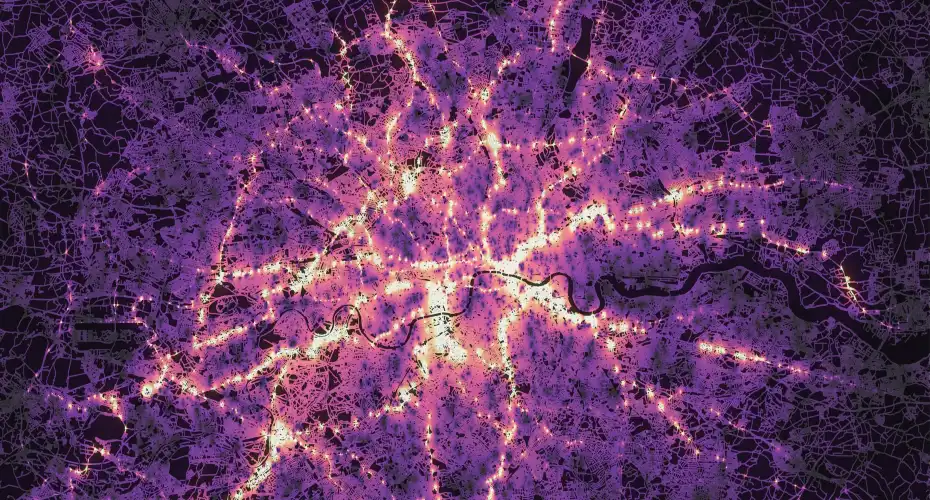Computation, Environment and Society
The complex interplay between human activities and the natural environment presents unprecedented challenges that demand innovative computational approaches. Climate change, biodiversity loss, and resource depletion threaten global ecological systems, while digital transformation reshapes how societies function. According to the IPCC, limiting global warming to 1.5°C requires reducing emissions by 45% by 2030, a goal that cannot be achieved without advanced computational methods to model, predict, and mitigate environmental impacts. Meanwhile, the digital economy now accounts for over 15% of global GDP, creating both opportunities and challenges for sustainable development.
In our group we develop and apply AI, data science, and computational methods to address pressing problems in environment and society. Our work directly supports the University Strategy 2030 aims to "Lead meaningful action against the climate emergency and ecological crisis" and "Lead the progress towards creating a fair, socially just and inclusive society." We combine expertise across disciplines to analyse complex systems using advanced techniques including machine learning, natural language processing, geospatial analysis, and network science.
Members
- Professor Ronaldo Menezes - Professor (E&R)
- Professor Hywel Williams - Professor (E&R)
- Professor Lu Liu - Professor (E&R)
- Dr Rudy Arthur - Senior Lecturer (E&R)
- Dr Federico Botta - Senior Lecturer (E&R)
- Dr Francisco Camargo - Senior Lecturer (E&R)
- Dr Diogo Pacheco - Senior Lecturer (E&R)
- Dr John Panneerselvam – Senior Lecturer (E&R)
- Dr Hugo Barbosa - Lecturer (E&R)
- Dr Jawad Fayaz - Lecturer (E&R)
- Dr Man Luo - Lecturer (E&R)
- Dr Milto Miltiadou - Lecturer (E&R)
Current research projects
- UKRI AI Hub on AI for Collective Intelligence: Exploring new approaches to harness collective intelligence through artificial intelligence
- UKRI Centre for Net Positive Climate and Health Solutions: Developing computational approaches to mitigate climate impacts while supporting health outcomes
- AI4NetZero: Applying advanced AI techniques to support decarbonization goals
- Greensight/TWINE: Environmental monitoring and analysis through integrated sensor networks
- Climate chatbot for UKCP18 data: Creating accessible interfaces for climate data analysis
- Computer vision for flood prevention: Deploying AI-based systems to enhance flood management
- Machine learning for earth observation: Developing advanced algorithms to interpret satellite imagery
- Smart agents for geospatial data: Creating intelligent systems to process and analyse complex geospatial information
Research topics
- Human Mobility Patterns and Urban Dynamics
- Social Media Analytics and Public Discourse Analysis
- Climate Data Science and Climate Communication
- Computational Social Science and Network Science
- Misinformation Detection and Analysis
- Environmental Monitoring and Remote Sensing
- Urban Data Science and City Science
- Disaster Response Systems and Natural Hazards Monitoring
- Collective Attention Dynamics and Media Engagement
- Geospatial AI and Earth Observation
- Sensor Fusion and Signal Processing
- Complex Systems and Bio-Inspired Computing
- Human Behaviour and Social Inequality Analysis
- Crime Dynamics and Urban Security
- Environmental Intelligence and Sustainability
- Agent-Based Modelling and Simulation
- Novel Data Sources for Environmental Monitoring
- Sustainable Computing and Green IT
- Human-Computer Interaction for Environmental Applications
